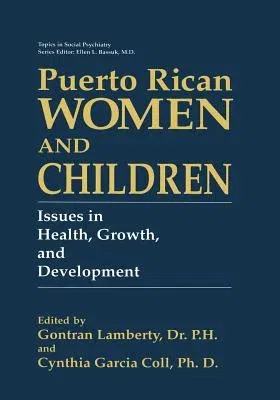Puerto Rican Women and Children: Issues in Health, Growth, and Development (Softcover Reprint of the Original 1st 1994)Paperback - Softcover Reprint of the Original 1st 1994, 21 November 2012

Qty
1
Turbo
Ships in 2 - 3 days
In Stock
Free Delivery
Cash on Delivery
15 Days
Free Returns
Secure Checkout
Part of Series
Topics in Social Psychiatry
Print Length
285 pages
Language
English
Publisher
Springer
Date Published
21 Nov 2012
ISBN-10
1461360536
ISBN-13
9781461360537
Description
Product Details
Book Edition:
Softcover Reprint of the Original 1st 1994
Book Format:
Paperback
Country of Origin:
NL
Date Published:
21 November 2012
Dimensions:
25.4 x
17.78 x
1.65 cm
ISBN-10:
1461360536
ISBN-13:
9781461360537
Language:
English
Location:
New York, NY
Pages:
285
Publisher:
Series:
Weight:
535.24 gm

